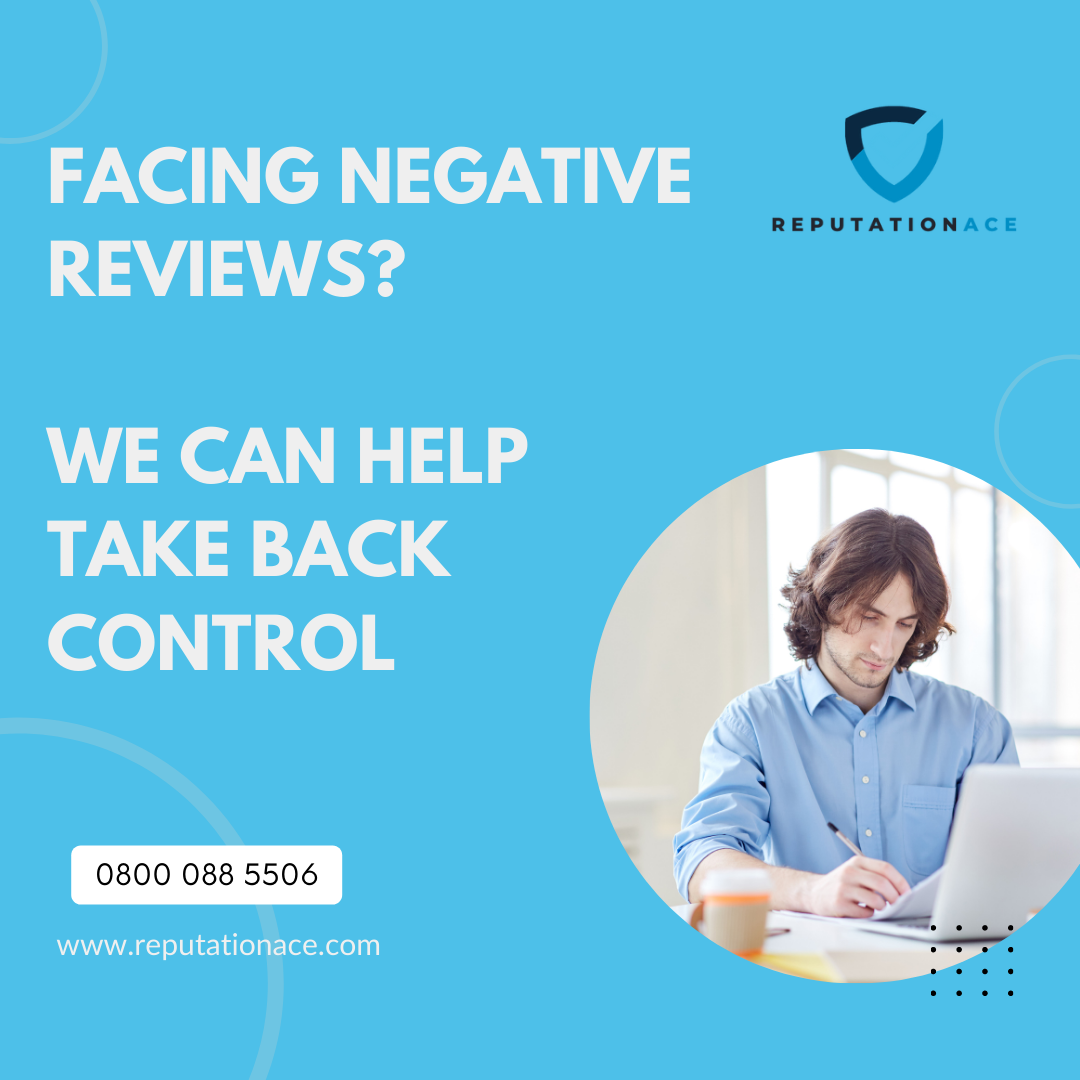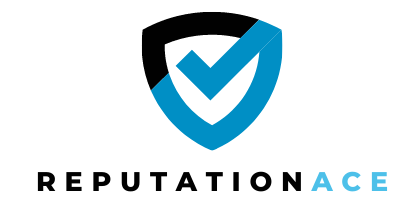How do I Rank Better in Google for My Business or Service?
Every competitor in your field wants to become the first search result that appears when customers are looking for key terms. The method by which Google ranks these listings can be perplexing, but search engine optimisation (SEO) professionals have discovered a few methods to increase Google rankings.
Because Google’s algorithm is always evolving, it’s critical to keep updated. We’ve updated this piece to look ahead and provide you with some useful tips on how to boost your business or service rank on top in Google results in 2022.
12 Ways to Rank Better in Google in 2022
-
Pick a URL and stay consistent with it.
Domain age isn’t a big element that Google will consider when ranking your website. Modifying your URL, on the other hand, might have a significant impact on how your site performs.
If you change your URL, all current links to your site may be broken unless correct redirects are set up. The links that point to your site (your backlinks) tell Google that other websites think your site is trustworthy. More backlinks from respectable sites (rather than spam or “toxic” connections, which we’ll address later) often correlate with higher Google rankings. This indicates that if you want to increase your Google ranking in 2022, you should maintain the same URL structure. If you need to modify some of your URLs—for example, if you’re establishing a blog area and want to shift some of your site content—make sure you use redirects.
A URL change also implies that Google will have to re-index or crawl your site. This implies you might lose your current rank. If your pages aren’t getting decent results to begin with, a fresh start may be in order. However, if your pages are performing rather well in your business, this might spell disaster.
Here are a few factors to consider while selecting your URL:
Ideally, your URL should include your term, although this is not always achievable. Your URL structure should be straightforward and sensible. It is excessive if a user must navigate through eight separate pages to locate a certain page. Always use redirects if you modify your domain or URL structure.
-
Assess Your Current Search Ranking
Your Google rank is also known as your position on a search engine results page (SERP). What a person is looking for will determine where you rank. If you offer landscaping services, for example, you will not appear in a search for dentists, which is a positive thing. You don’t need to know your Google rank for every SERP. However, you should be aware of which keywords are most relevant to your business and where you rank in those SERPs.
A variety of SEO tools, such as SEMrush and Raven, give detailed information about your keywords and Google ranking. You may also utilise free programmes to run periodic checkups. SERPs.com offers a free Keyword Rank Checker to see how well your site performs for various keywords and areas. Once you’ve determined which keywords to target, how to include them into your content, and where you stand, you can begin working on increasing your Google rankings in 2022.
-
Keywords and Search Rankings in 2022
Keywords have always been a crucial aspect in assisting consumers in finding your website. However, the techniques in which Google and other search engines employ keywords to generate a SERP are continuously evolving. It’s still useful to know what consumers are searching for in your business and how your site ranks for these keywords in 2022. However, it’s worth noting that Google’s grasp of English is very advanced, and the usage of singular words isn’t nearly as significant as it formerly was. We’ll go over this in more detail later in the post.
- Analyze your site’s speed
Google’s page-ranking algorithms are becoming more focused on enhancing user experience. Users are more likely to stay on a website, return to it, and connect to it if it loads quickly and smoothly. Google prefers to reward pages that load quickly and place them higher on a SERP, which is related to, or possibly because of, this.
To evaluate page load speed, use any of the following options: GTmetrix, Pingdom, or Google PageSpeed Tools.
To boost your Google ranking in 2022, you’ll need to examine a variety of site speed factors. A critical component of this is the use of core web vitals. Core web vitals are important performance indicators for your website that Google utilises to determine how effectively it operates. This covers three important metrics: Largest Contentful Paint (LCP), First Input Delay (FID), and Cumulative Layout Shift (CLS) (CLS).
LCP, or Largest Contentful Paint, is a metric that gauges loading performance from the standpoint of the user. Though there are many page speed load metrics, this one stands out due to the shift to the user’s point of view. A proper LCP should not take more than 2.5 seconds to complete.
FID, or First Input Delay, is the length of time it takes for a user to interact with a website. This might involve things like clicking a link, utilising a menu, or filling out a form. FIDs of 100 milliseconds (one-tenth of a second) or fewer are deemed acceptable.
CLS, or Cumulative Layout Shift, is another metric that deals with webpage loading from the user’s perspective, however, it does not track time. CLS, on the other hand, measures how a webpage rearranges itself as it loads. When certain items load slower than others, the elements will re-arrange as the user navigates the website. If you’ve ever visited a page and attempted to click on the menu only to inadvertently click on an ad while the page loaded, the page most likely had a greater than CLS. An excellent CLS score is one that is less than 0.1.
To measure core web vitals, you may utilise Google’s Search Console tool suite’s Chrome User Experience report, PageSpeed Insights, or the Core Web Vitals report.
-
Start Using Google Analytics
If you’re working on SEO, you’ve most likely installed Google Analytics on your website. If you haven’t already, learn how to use it and set it up as quickly as feasible. You may use this tool to measure conversions and sign-ups on your website, as well as keywords, traffic patterns, site speed, and a variety of other aspects. It is one of the finest techniques to boost your Google website ranking in 2022 because it was built by Google for website managers.
Remember that Google wants its consumers to have a positive internet experience. Pursuing this objective has aided them in becoming the world’s top search engine. This means that Google favours sites that provide positive user experiences and ranks them higher in SERPs. Low bounce rates, rapid load speeds, extended stay periods, and high click or conversion rates are all indicators of a successful experience, according to Google. All of these measures show that people find your site valuable, and they are all available in Google Analytics.
-
Use the Right Title Tags
Every page on your website should have its own title tag. This demonstrates to Google that you truly have unique material on your website and that your pages aren’t simply duplicate content. This is also an excellent location to include your keywords. To enhance your Google ranking for a certain search, it’s a good idea to inform the search engine what the website is about right away. This is the purpose of your title tag.
Moz’s SEO experts recommend keeping your title around 60 characters in order for it to be completely shown. They also propose the following guideline for title tags:
- Brand Name – Primary Keywords – Secondary Keyword
This formula should not be considered the be-all and end-all answer for your title tags. On a SERP, the title tag is frequently the only thing that the user reads. Your website traffic will suffer if your title tag does not attract them in and inform them about your company or the content of your page.
Experiment with several high-performing keywords, places, or zip codes. Remember that each page title should be distinct; otherwise, your pages will begin to compete with one another, and each’s Google rating will suffer.
-
Description Tags
Your meta description appears beneath your page title. This information tells Google’s bots and potential visitors more about the content and purpose of your page. As Google’s search algorithms have evolved over time, the value of description tags has waned significantly. Previously, these description elements might be filled with keywords and appear at the top of search engine result pages. Now serve the objective of enticing consumers to visit your page.
Description tags should be created to establish your company’s legitimacy, to explain what services or deals you provide, or to entice the visitor to take action on your website. It’s a good idea to include your keywords once in the description, but overdoing it may cause your rank to drop. Meta descriptions are also displayed when sharing your page on social media, so make them accurate, eye-catching, and succinct.
-
Enhance Site Architecture
A good website architecture entails structuring all of your pages and content in the most logical order possible. As a general rule, getting to the deepest area of your site should take no more than three clicks.
This is beneficial in two ways. Your bounce rate will increase and your user session duration will decrease if your site is extremely complex and causes people to return to the search engine result page. If anything on your website is tough to perform, your visitor will take the route of least resistance and go somewhere else. Everything on your website should be easy to find.
A basic site architecture also ensures that Google can crawl your pages faster.
-
Have a mobile-friendly or responsive website.
Mobile devices currently outnumber PCs in terms of search volume. Though this differs by business, it has huge ramifications for how your website ranks. In general, if your site isn’t mobile-friendly, Google will penalise it. Mobile consumers will leave your site faster if it does not perform or load correctly on their devices, which can harm your ranking. The Google algorithm is also built to test for load speed, so if your site doesn’t load on mobile devices, it will harm your ranking.
Google provides mobile assistance pages to aid webmasters who haven’t yet established a mobile site or a responsive site (which automatically rearranges information for mobile visitors).
- In 2022, the Impact of a Mobile Site
In 2022, mobile usability will be a critical component of your Google ranking. This part of your website is getting increasingly crucial. If you haven’t created and tested a mobile or responsive website yet, 2017 in the year.
Several years ago, Google highlighted the influence of mobile readiness on a webpage’s Google ranking. Then came the mobile-first index, in which Google said that it would primarily use the mobile version of a site for indexing and ranking purposes. It’s anticipated that roughly 75 per cent of internet users will access the internet via mobile devices over the next five years, so it’s no wonder that this element is becoming increasingly significant. Test your site on a mobile device and optimise it as soon as possible to boost your Google ranking in 2022.
-
Publish Informative Content
People would cease using Google if it did not deliver accurate, trustworthy results. Recognizing this, Google developed EAT to steer their SERPs and assist content writers in developing high-quality web pages. EAT stands for experience, authority, and dependability. This has an effect on various aspects of your site, but the main message is that websites renowned as industry authorities that also create helpfully, trustworthy material will boost their Google results.
This may not be reassuring if your website is still in its early stages. However, there are still ways to use EAT to your advantage. Here are a few suggestions:
- Make use of dependable links. Links to other websites (outbound links) demonstrate that you use reputable sources for your site content.
- Give credit to the author. When creating educational material, such as blog entries, news articles, or explanatory pages, indicate who created it and what relevant expertise they have.
- Produce high-quality backlinks. When other sites link to yours, it’s a vote of confidence in your site, which adds to your authority and reliability. Check to see whether your material is relevant or useful to other sites, and then approach the management about a backlink.
Disavow any potentially harmful ties. Spam sites will occasionally link to yours. These connections can harm your credibility and Google ranking, but you can prevent this by disavowing backlinks.
-
Incorporate Keywords Naturally
Keywords used to play a far greater part in how Google comprehended a user’s search requests and the results it returned in the response. Google now understands language and generates results using artificial intelligence and a powerful neural network. Google does not generate a SERP based just on keyword matches. BERT, a significant Google Search upgrade, enabled Google to comprehend users’ search intent. Google’s Natural Language Processing capability will increase much more in 2022. According to Google, the Multitask Unified Model, or MUM, is “1,000 times more powerful” than BERT and allows the search engine to understand language (75 different languages that it can move between to respond to a user’s search), a user’s search intent, how ideas connect, and sometimes even understand pictures, clips, and audio and how they connect to a concept or question.
What does this mean for your website and its rating on Google? It will not work if you rely entirely on keywords to increase your Google ranking. Keywords are vital, but context is more important than ever. Your information should be well-written, informative, and easy to understand. Term stuffing (using a keyword and synonyms as much as possible to rank higher on a SERP) will actually harm your SEO.
- MUM in the Year 2022 and Beyond
The procedure that led to the creation of MUM, as well as the strength of the artificial intelligence system, is amazing. On crucial natural language understanding evaluations, the system received a “near-human score” when evaluated. This indicates that the search engine is growing more capable of determining the precise purpose and need underlying a user’s search queries.
What does this mean for your Google rank, keywords, and SERPs in 2022?
This implies that the words you use on a page are less significant than the information you give. While understanding the essential themes your audience is looking for is beneficial at this point, it is more vital to delivering relevant, detailed, and clear content than to utilise particular phrases. MUM is still a new version, and it will take some time to polish it, and even longer see true changes on the web. However, it is critical to understand this tendency since it is not going away. In general, if you want to increase your Google ranking in 2022, make your text, video, photographs, and other material appealing to people–because Google’s language understanding is “near-human,” you’ll satisfy both your audience and the world’s most powerful search engine.
-
Use videos
You may have noticed that video results are now appearing more frequently for a wider range of queries. In 2017, the likelihood of seeing video results on a SERP grew by almost 75%. Since then, the frequency of these results, known as “video carousels” since they display a lot of video results in one location on the SERP, has increased. Many people who were previously unable to achieve top positions in competitive searches have risen to the top because of video content.
There are several causes for this. The first is a rise in the number of diversified, multimodal outcomes. Google gives text, photos, lists, news stories, statistics, video, and more now that it knows what type of results are ideal for you (unless you say otherwise). This is an attempt to improve the user experience. The second reason might be Google’s efforts to expand YouTube, its video-hosting service, and guarantee it stays the go-to video platform. Users who watch YouTube videos are also kept on a Google-owned internet domain rather than being sent to a different page. Finally, the rise in video carousels on SERPs may reflect user preferences; people are more inclined to watch more of a video and share it more frequently.
So, what does this entail in terms of increasing your Google ranking? Using video, both on YouTube and embedded on your page, may increase traffic from a variety of sources. A well-crafted video may promote more shares and dwell time, as well as gain the top slot in a video carousel. However, video results do not show in the same order for all queries. First, research your sector and search terms to ensure that the video makes sense for your website.
-
Video Upgrades in 2022: Video Snippets
You may have noticed an increase in the amount of “video snippets” appearing at the top of a SERP in the last year. These snippets emphasise certain parts of a view that may answer or help a user’s search. In 2022, expect to see even more of these video clips. This opens you new chances for improving your Google ranking in 2022. It also provides you with more options to enhance your overall traffic, especially as viewership and content on short video platforms such as TikTok, Instagram Reels, and YouTube Shorts rise. In your video, you may define Clip Markup and Seek Markup to indicate Google the subjects you address throughout certain video portions. Google will do this automatically if your video is well-defined, but you may get a higher ranking if you describe these chunks in your markup yourself.
-
Strive for SERP Position Zero.
The addition of video carousels to the SERP is not the only new update. You may have noticed that Google answers many of your search queries before you ever visit any website. Shortlists, paragraphs, or tables may appear at the top of the search in a box, which Google refers to as a Featured Snippet. This information is derived from somewhere in the SERP, most commonly (but not always) from the first or second result. Because it displays before even the number one result, SEO specialists refer to this as “SERP spot zero.” Those in SERP slot zero receive more hits than results in the top place, implying that obtaining this location can significantly increase your Google rank.
-
How Can You Get a Featured Snippet?
While there is no unique code or formula that will guarantee you this position, you may improve your chances by modifying your web page content significantly. Here are a few pointers to snagging this spot:
Use a numbered structure and short phrases when explaining a procedure. This should be at the top of the page.
When making a list, utilise bullets and place them at the top of the page.
If you are responding to a question, include the question and your answer at the top of the page in full, but quickly.
Remember that highlighted snippets are most popular for question inquiries that begin or contain the words “who, what, when, where, why, how.”
Because nearly all highlighted snippets are sourced from results that already show on the first SERP, your overall page and content must also be of high quality.
- Passage Ranking Changes in 2022
You may have recently seen certain highlighted portions appearing at the top of a SERP, particularly when you ask a highly precise inquiry or use a lengthy-term. These “featured passages” vary from highlighted snippets in that they appear for lengthier, more specialised searches. This update emphasises the significance of extensive, unambiguous informational material once more. If you cover a topic clearly and exhaustively, your material may show as a featured excerpt when a user asks a specific inquiry, and you may earn SERP position zero.
Improving your Google ranking may help you produce more traffic, which leads to more website visits and, eventually, sales. To really convert your traffic, you must also have a digital marketing strategy in place to introduce site users to your product or service. With all of these components in place, you can truly make Google work for you, whether you have a small, new site or a huge, established one.
Check out our free consultation today to learn more! Or If you need any help, advice or have any questions contact Reputation Ace any time or email us at info@reputationace.com
Get a FREE QUOTE
















